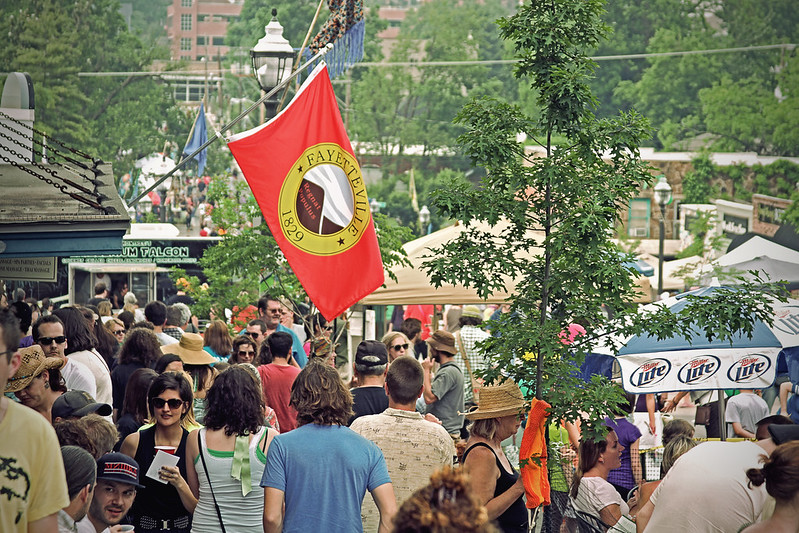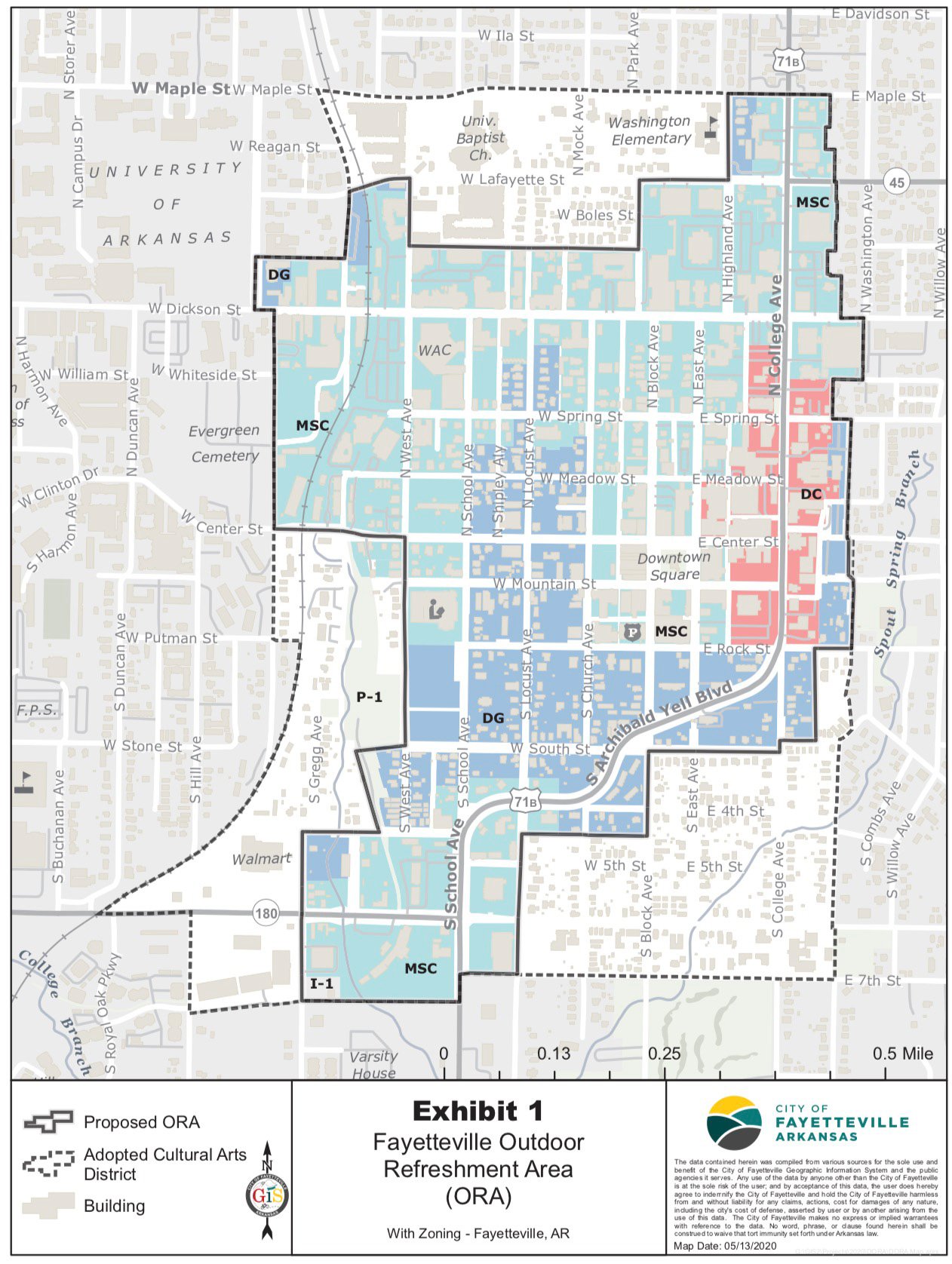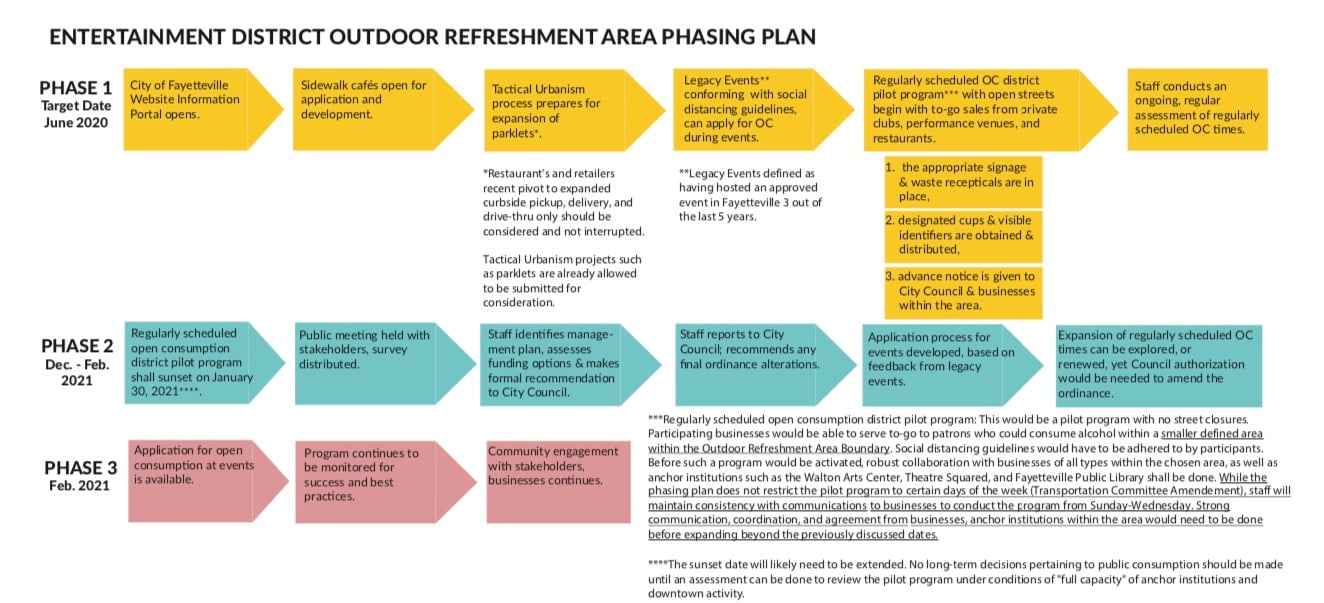
2012 Block Street Block Party / File photo
Fayetteville can now take advantage of a new state law that allows public consumption of alcohol in certain places.
City Council members on Tuesday approved a proposal establishing rules and boundaries where residents can drink alcohol outside without having to stay within a fenced-in area.
The move comes on the heels of Act 812, a new state law that allows municipalities to create designated entertainment districts inside commercial areas that contain places like restaurants, bars, music venues, art galleries, and other entertainment or hospitality establishments. Those districts would be exempt from state laws that prohibit public alcohol consumption.
Fayetteville’s district, known as the Outdoor Refreshment Area, is largely derived from the city’s 2007 Cultural and Arts District boundaries, with some modifications to eliminate primarily residential areas, per state law. Roughly described, it runs from Dickson Street south to Martin Luther King Jr. Boulevard, and from Arkansas Avenue east to College Avenue. The specific boundaries, however, reach a little farther in each direction in some places (see map below):
Fayetteville’s plan was first introduced last fall, but was put on hold for further fine-tuning.
The original plan only called for outdoor consumption of alcohol during special events, such as festivals that are authorized by the mayor on an individual basis.
The new plan adds the ability for a business inside the district boundaries to apply for a special sidewalk cafe permit that allows customers to drink alcohol outside the business without a barrier. An emergency clause was added to the measure that puts the new rules into effect immediately instead of having to wait the standard 30 days. That idea, staff said, was proposed as a way to help businesses who are struggling because of the COVID-19 pandemic.
During special events, organizers can ask the city for approval to allow outdoor drinking outside of beer gardens if their event area is on a closed street or on a city-owned parking lot. Organizers can choose if they want to source alcohol through the normal ABC Temporary Picnic Permit process, or to enable surrounding businesses within the closed area to serve to-go drinks to event attendees, who could then consume an alcoholic beverage within the event area.
Finally, the plan allows the city to experiment with a smaller pilot program area inside the district where customers can purchase alcohol from a business using a city-branded cup and then walk down the sidewalks of that area with their drink during times when there’s no festival or special event occurring.
Some details about the pilot program are still being worked out, such as exactly what kind of cups will be ordered. Staff said the goal is to eventually get the pilot program rules in place seven days a week, but the current recommendation is to start with Sunday through Wednesday. The proposal also includes a list of requirements that must first be met before the pilot program can begin. Some of those include a 21-day notice for all businesses within the area, placement of boundary signage, public education, and notifying the City Council of the start date. The pilot program is currently scheduled to sunset on Jan. 30, 2021.
The council approved the district 7-1 with Council Member Teresa Turk voting against. Turk said she was uncomfortable passing the new plan after only one City Council meeting.
The plan will be rolled out in phases.
The initial phase includes immediate opening of sidewalk cafe permit applications, and allows established events (those that have occurred in town three out of the last five years) to apply for outdoor consumption.
Phase 2 runs from December to February and marks the end of the pilot program in which staff will use data collected through Phase 1 along with feedback from surveys and stakeholder meetings to recommend any changes to the City Council.
The third phase soon follows and allows any event to apply for open consumption of alcohol within the new district.




